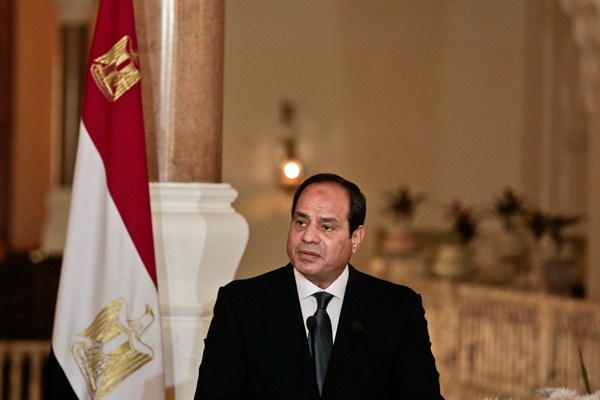Egypt’s president, Abdel-Fattah el-Sisi, is coming to Washington next week, and he can expect a warm welcome. After all, President Donald Trump praised him during last year’s election campaign as a “fantastic guy.” Following a meeting with el-Sisi in New York during the United Nations General Assembly in September, then-candidate Trump promised that under his administration, the United States “will be a loyal friend, not simply an ally, that Egypt can count on in the days and years ahead.” Unlike German Chancellor Angela Merkel, el-Sisi—who has thrown tens of thousands of dissidents into Egypt’s jails—will almost certainly get a handshake with Trump in the Oval Office on April 3.
The White House let it be known that el-Sisi’s visit was at Trump’s invitation, after Egyptian newspapers first reported the news. The two leaders are building a rapport based on mutual praise, but also strategic silences. The first phone call Trump took after his win last November was from Egypt’s general-turned-president, who took power in a 2013 coup before winning a subsequent election. In the first days of the Trump administration, though, el-Sisi refused to comment when Trump, by executive order, imposed his initial travel ban on seven Muslim-majority countries, including several Arab nations. The Arab world’s most populous country—a place that still tries to assume a mantle of regional leadership, even though that has long since faded—made it clear that it is “on the Trump train,” as the BBC’s reporter in Cairo put it.
El-Sisi’s U.S. visit comes just after the release of Hosni Mubarak, Egypt’s ousted president who has spent most of the past six years in custody since he stepped down during the popular uprising of 2011. Attempts to hold Mubarak accountable for protesters who were shot and killed by his security forces during the 2011 protests, or for rampant corruption during his three-decade rule, have stalled or failed in Egyptian courts.

